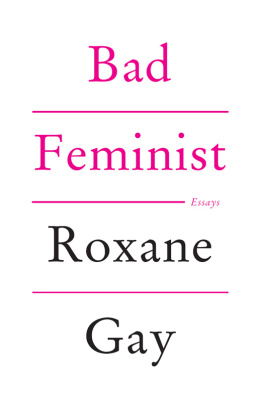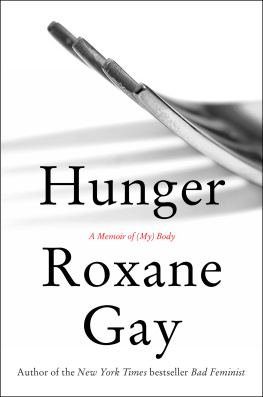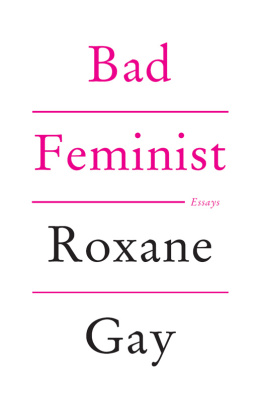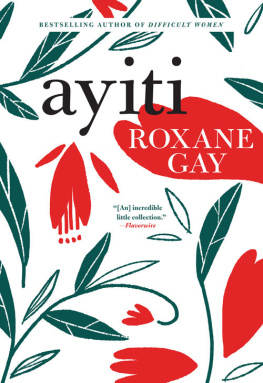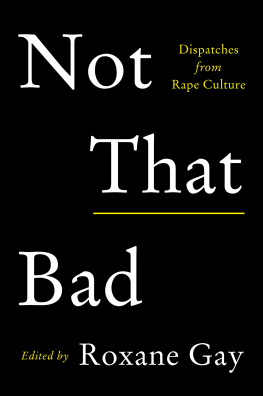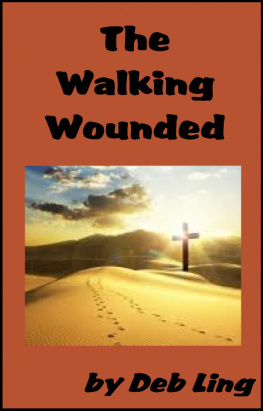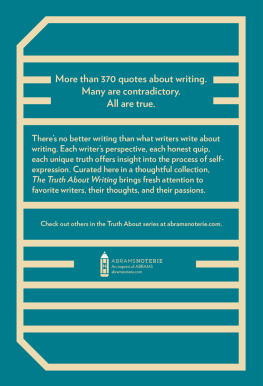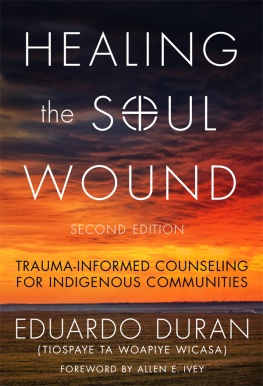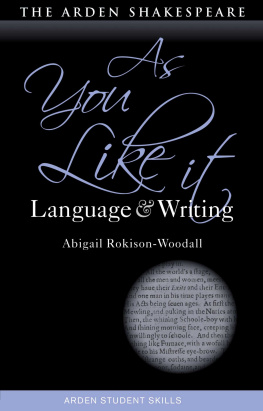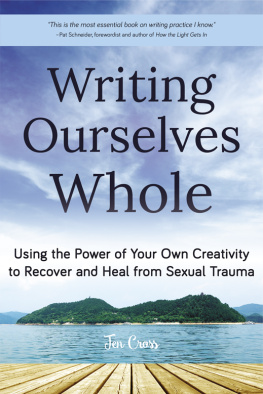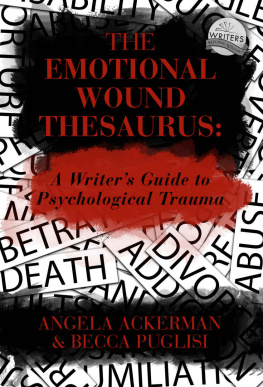Roxane Gay - Writing into the Wound: Understanding Trauma, Truth, and Language
Here you can read online Roxane Gay - Writing into the Wound: Understanding Trauma, Truth, and Language full text of the book (entire story) in english for free. Download pdf and epub, get meaning, cover and reviews about this ebook. year: 2021, publisher: Scribd Originals, genre: Detective and thriller. Description of the work, (preface) as well as reviews are available. Best literature library LitArk.com created for fans of good reading and offers a wide selection of genres:
Romance novel
Science fiction
Adventure
Detective
Science
History
Home and family
Prose
Art
Politics
Computer
Non-fiction
Religion
Business
Children
Humor
Choose a favorite category and find really read worthwhile books. Enjoy immersion in the world of imagination, feel the emotions of the characters or learn something new for yourself, make an fascinating discovery.

- Book:Writing into the Wound: Understanding Trauma, Truth, and Language
- Author:
- Publisher:Scribd Originals
- Genre:
- Year:2021
- Rating:3 / 5
- Favourites:Add to favourites
- Your mark:
- 60
- 1
- 2
- 3
- 4
- 5
Writing into the Wound: Understanding Trauma, Truth, and Language: summary, description and annotation
We offer to read an annotation, description, summary or preface (depends on what the author of the book "Writing into the Wound: Understanding Trauma, Truth, and Language" wrote himself). If you haven't found the necessary information about the book — write in the comments, we will try to find it.
Writing into the Wound: Understanding Trauma, Truth, and Language — read online for free the complete book (whole text) full work
Below is the text of the book, divided by pages. System saving the place of the last page read, allows you to conveniently read the book "Writing into the Wound: Understanding Trauma, Truth, and Language" online for free, without having to search again every time where you left off. Put a bookmark, and you can go to the page where you finished reading at any time.
Font size:
Interval:
Bookmark:
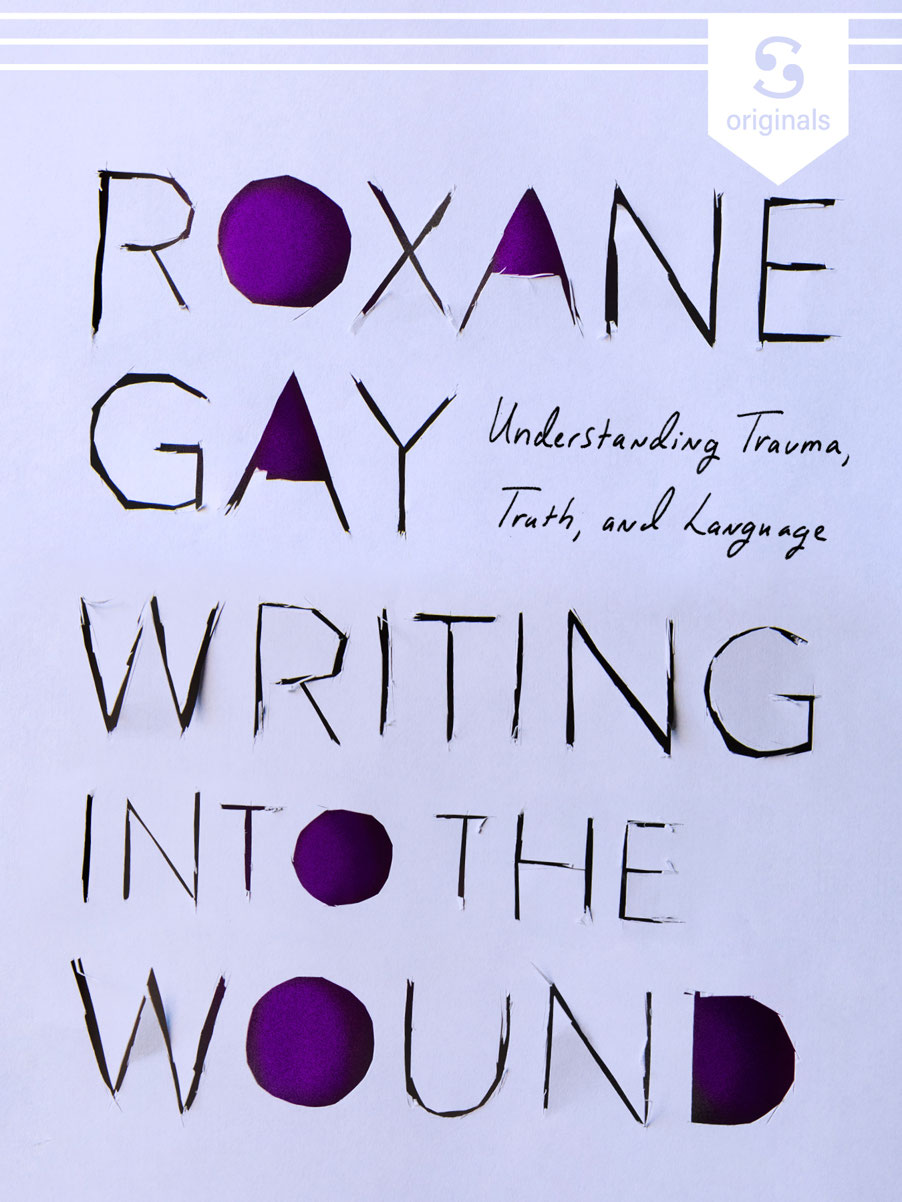
Writing into the Wound
Understanding trauma, truth,
and language
By Roxane Gay
SCRIBD ORIGINALS
Copyright 2021 by Roxane Gay
All rights reserved
Cover design by Catherine Casalino
ISBN: 9781094400020
First e-book edition: February 2021
Scribd, Inc.
San Francisco, California
Scribd.com
For more, visit www.scribd.com and follow @Scribd on Twitter, Facebook, and Instagram
IN THE SUMMER OF 1994, I was a rising junior at Yale University. I had already changed my major twice. I began as a premed student, because I had an elaborate fantasy about becoming an emergency room doctor, fast on my feet, saving lives, engaging in torrid affairs with my fellow doctors, sex in on-call rooms, living a grand life. And then I took introductory biology with a professor who told the hundreds of eager students sitting before him that his class was designed to separate the biology dilettantes from the students who had the potential to become doctors. As the semester progressed, I was slow to make sense of the course material and quick to understand that I was one of the dilettantes he was so eager to dissuade from the medical profession.
At the beginning of my sophomore year, I decided I would be an architect. My father is a civil engineer, so I hoped that an understanding of structures was part of my genetic inheritance. I loved my architecture classes. I loved building models and imagining what structures could be. In an urban planning class, I learned about how a city is designed and the importance of green space. In the studio, late at night, I would cut cork sheets with my X-Acto knife, and sometimes my hands. I had good ideas, but I struggled with physics, the laws of gravity, and designing structures that could realistically exist.
I worked part-time in a computer lab in the cross-campus underground library. I loved technical theater and spent an inordinate amount of time on drama productions, designing and building sets, running soundboards, doing whatever needed to be done to make a show come alive from behind the scenes. Finally, at the end of my sophomore year, I settled on English. I loved reading and I loved writing, so surely studying reading and writing would be a natural fit. I moved with a roommate into an apartment off-campus above a small grocery store. I monopolized the phone line and used a modem to navigate the early internet, which is to say I spent a lot of time talking to strange men about sex. I pretended to be anyone but myself, hoping I could lose myself in the virtual world. I wanted to lose myself because I was losing my mind. I was breaking beneath the pressure of trying to be the good daughter and the perfect student when I was so desperately far from perfect. I was carrying a secret and using food to fill an ever-expanding void inside myself. And then, a few weeks before the semester began, I disappeared.
In the ensuing years, my life has changed radically, and so has the world. As I write this, we are in the midst of an intense and seemingly unceasing collective trauma. Donald Trumps reign as president and the grandest disgrace in American history is just behind us. The world has been ravaged by a pandemic that is particularly out of control in the United States. We have a new president, but a record number of people are going hungry as unemployment rises, along with the number of families falling into poverty. There are housing crises and debt crises. The wealthy grow wealthier. The erasure of the middle class proceeds apace. The environment is at a fragile precipice as hurricanes batter the South and the East and wildfires burn, unstoppable, across the West. The fractures between people with opposing viewpoints continue to deepen and expand. As a writer, my job is to make sense of the state of the world; I hardly know where to begin.

WHEN I WAS TWELVE YEARS OLD, I was gang-raped by a group of boys in an abandoned cabin in the woods. Its not an interesting story. I am, frankly, exhausted with the story. Its just my truth. It is a horrifyingly common experience, one with which far too many women and some men are familiar. But regardless, I was raped and I didnt tell anyone for years, even though it was painfully clear that something was wrong. In an instant, I became a stranger to everyone who knew me. I became a stranger to myself. I had no idea how to explain who I was becoming. I had no idea how to keep myself from shattering, so I did. I shattered, but my skin hid all the broken shards of who I had been. It was easy to hide in plain sight.
Ive been writing since I was four years old. My early stories were sweet, gentle. I simply loved being able to make and remake the world, limited only by the boundaries of my imagination. And then my writing changed. As a teenager, I wrote countless short stories about terrible things that happened to girls. The stories were melodramatic and overwrought and dark and graphic. I couldnt tell anyone what happened to me, but in an indirect way I was telling everyone. I was screaming it.
Sometimes those screams were deafening. During my senior year of high school, two friends and I wrote and produced a play about sexual violence. I dont remember much about the play, but I know when my parents saw a performance, they were confounded. They wanted to know how I could come up with something so dark and unfortunate. I was presented with an ideal opportunity to unburden myself, but still I said nothing.
I finally decided to write directly and openly about my sexual assault, how it changed me, how that assault has haunted me for more than thirty years, with my memoir Hunger: A Memoir of (My) Body. In previous work, I discussed the assault cursorily. I wrote around it. In part, I was protecting myself. I could admit this thing had happened to me, but I was not ready to share the details. I had kept those details largely to myself for nearly three decades. Enough time had passed that I wasnt even sure the details mattered anymore. Ive never forgotten what happened. I remember that terrible day with excruciating clarity. But I also did not trust my memory. I told myself it wasnt as bad as I thought, even though it was. In truth, I wasnt ready. I wasnt ready to hurt myself in the way I would have to hurt myself to detail what happened and how and what it felt like to be in my body as my body was callously taken apart.
I wrote around my trauma because it was the only thing I could do. I did not yet know how to make myself be heard. Sometimes this decision to write around rather than into my trauma frustrated readers. In my essay collection Bad Feminist, the essay What We Hunger For was the most explicit thing I had, until then, written about what I endured. A reviewer said she threw the book across the room when she realized I was not going to go into any detail about the rape itself. I was furious when I read the reviewfurious at the reviewers unwarranted entitlement, furious at myself for opening myself to the entitlement of others, furious that I had this terrible story to tell.
I knew what I wanted to say, but I was at a loss for how to say what I wanted to say. Every time I sat down to work on the book, my mind went blank. I had no idea of where or how to begin. Deadlines came and went. The books original publication date came and went. I pushed the release back a year. Still, I could not find the right words. And then, when I was staring down yet another delay of the books release, I started writing, fumbling blindly as I tried to write about a profound trauma and how it had shaped and reshaped me. I tried to write about what it means to live in a fat body, which was, in its own way, another trauma. And I tried to do all this while living in the very body, living with the very trauma, I was writing about. Eventually, I did write a book. I worked with my editor and revised the book. I tried to prepare for having that book out in the world, in the hands of people, some of whom would be generous and kind in receiving my story, and some of whom would not.
Font size:
Interval:
Bookmark:
Similar books «Writing into the Wound: Understanding Trauma, Truth, and Language»
Look at similar books to Writing into the Wound: Understanding Trauma, Truth, and Language. We have selected literature similar in name and meaning in the hope of providing readers with more options to find new, interesting, not yet read works.
Discussion, reviews of the book Writing into the Wound: Understanding Trauma, Truth, and Language and just readers' own opinions. Leave your comments, write what you think about the work, its meaning or the main characters. Specify what exactly you liked and what you didn't like, and why you think so.

